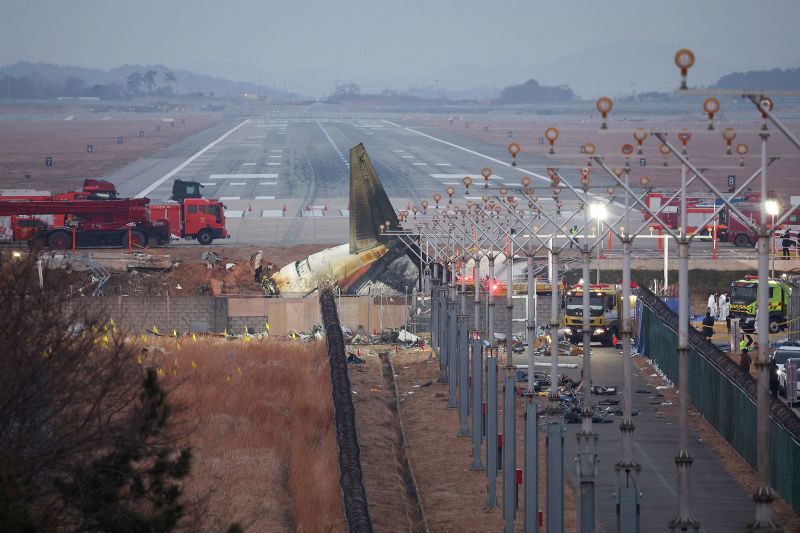Flight recorders from the passenger jet that crashed in South Korea last month, killing more than 170 people, stopped working minutes before the plane belly-landed and exploded on the runway, investigators said Saturday.
Officials probing the country’s deadliest aviation accident in almost three decades had hoped information from the so-called black boxes would shed light on why Jeju Air flight 7C 2216 from Bangkok belly-landed at Muan International Airport on December 29, erupting into a fireball.
The disaster killed 179 passengers and crew members. Two people survived.
But South Korea’s transport ministry said Saturday that both the cockpit voice recorder (CVR) and flight data recorder (FDR) from the Boeing 737-800 had stopped working about four minutes before the crash.
In a statement, the ministry said it was unclear why the devices stopped recording, adding that it will work to determine the cause.
“CVR and FDR data are important data for accident investigations, but accident investigations are conducted through investigation and analysis of various data, so we plan to do our best to accurately identify the cause of the accident,” the ministry said.
The cockpit voice recorder was first analyzed locally and later sent to the United States for cross-checking, the ministry said.
The flight data recorder, which was damaged and missing a connector, was sent to the National Transportation Safety Board in the US last week for analysis, after South Korean authorities concluded they could not extract data from the device, due to the damage.
The crash was the country’s deadliest since 1997, when a Korean Air Lines Boeing 747 crashed in the Guam jungle, with the loss of 228 lives.
It is not yet clear what caused it, with the investigation expected to take months.
Footage of the crash showed that neither the back nor front landing gear was visible at the time of the crash-landing.
Prior to the emergency landing, the pilot made a mayday call and used the terms “bird strike” and “go-around,” according to officials, who also said the control tower had warned the pilot of birds in the area.
Another point of contention has been the concrete embankment that the plane hit upon landing. Many airports don’t have similar structures so close to runways, according to aviation experts.
South Korean police last week also raided Jeju Air’s office in Seoul and the operator of Muan International Airport as part of their investigation, Reuters reported.

